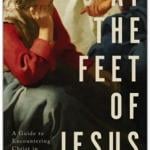In his contribution to Joy and Human Flourishing, Jurgen Moltmann observes that modern theories of religion trace it to “misfortune.” Marx is representative: “Religion is the sigh of the oppressed creature.” Religion must be useful, must meet a need, “because everything in the modern world must be necessary; otherwise it is superfluous and useless.” Moltmann doesn’t buy it: “this view is wrong. In truth, religion is the feast of life, useless but joyful, and prayer is praise for the fortune... Read more




















